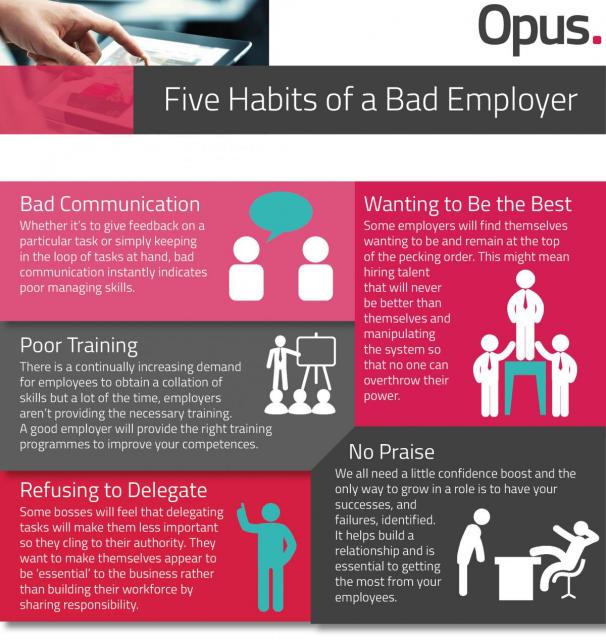Search the Community
Showing results for tags 'quit'.
-
https://www.channelnewsasia.com/singapore/gen-z-young-workers-job-hop-career-switch-5217766 A CNA survey finds that on average, Singapore’s Gen Z workers prefer to stay in a job for 2.9 years – the shortest duration among their peers in Asia. SINGAPORE: When Ms Kumar, 27, told her parents she planned to leave her first job, her mother was taken aback and questioned her lack of “loyalty" to the company. Ms Kumar, who preferred to be known by her surname only, found this sentiment “quite ridiculous”. She left her job as a university administrative executive early last year. “You have to be loyal to yourself ... what you deserve and how you want to improve. If the company’s not serving you, it’s okay to leave,” she told CNA. Her point of view appears to be shared by working-age peers in Gen Z – loosely defined as the generation born from 1997 to 2012, and aged 13 to 28 this year. In a survey by CNA's Money Mind programme, Gen Z workers in Singapore aged 21 to 28 reported the shortest mean optimum period – 2.9 years – for staying in a job, compared to their counterparts in Asian countries. It was 3.5 years for workers in Indonesia, Thailand and the Philippines; 3.7 in Malaysia; and the longest of 4.6 in China. Staying for three to four years was the most popular option for Gen Z workers in most countries, including Singapore. China and the Philippines bucked the trend, with most choosing to stay for five years or more. In Singapore, 37 per cent of Gen Z workers would choose to stay for a shorter period of one to two years. This was higher than all other countries, particularly China, where just 5 per cent chose this option. Out of the 508 respondents in Singapore, only 14 per cent chose five years or more as the optimum duration in a job. This was by far the lowest proportion among countries surveyed. Gen Z workers have a strong desire for higher salaries and career growth, and changing jobs every two to three years is seen as an effective way to develop their careers, said Mr David Blasco, country director at recruiter Randstad Singapore. But individual motivations aside, structural reasons may also be a factor. “The pandemic and economic instability, marked by a surge in ‘revenge hiring’ quickly followed by global restructuring and a slowing economy, have made traditional job security feel less attainable,” said Mr Blasco. “As a result, Gen Z’s tendency to job-hop is better understood as a rational response to a more volatile market, not simply a lack of commitment.” NOT RESTING ON LAURELS Ms Kumar, now a programme executive in a non-profit, cited job satisfaction and personal and career development as her main reasons for switching both job and industry. The Money Mind survey found that in Singapore, work-life balance (65 per cent), high wages (62 per cent) and flexible work arrangements (53 per cent) were Gen Z workers’ top reasons for staying in a job. On the flip side, work-related stress (48 per cent), lack of career advancement (44 per cent) and unhappiness with a superior or colleague (44 per cent) were their top reasons for quitting in Singapore. Other Gen Z workers interviewed by CNA cited similar motivations as Ms Kumar. Mr Heng T J, 28, a public servant in healthcare who asked to be identified by his initials, has changed jobs three times in five years. Since he started working in 2020, his longest role has been for about two years in a university, while his shortest stint has been around half a year in a bank. Mr Heng said he did not intentionally set out to change jobs so frequently. But in the early stages of his career, learning is a priority. “(After) two, two-and-a-half years, if I’m not learning in my role, I guess the hesitation to leave will not be that high,” he said. “I don’t think I should be resting on my laurels.” His reasons for switching jobs include being a poor fit with the job and workplace culture; lack of growth potential; and dissatisfaction at his scope of work changing after a company reorganisation. Another Gen Z worker, a 29-year-old advertising and public relations account manager who did not want to be named for this story, has worked in four agencies since 2020. She stayed for about a year in each position. “At each step, I already know what exactly I want to do, and what I want to achieve out of this agency,” she said. For example, her goal could be to manage a marketing campaign budget of a certain size, or to run an offline campaign. “If I’ve already achieved it, whether it’s one year or less than a year, I’ve done what I came here to do. I’ll just move on.” Human capital experts said Gen Z workers’ priorities differ from those of older workers. Flexible work arrangements, learning opportunities and quality of management matter more to Gen Z workers, while older workers focus on pay and benefits, job security and job location, according to Aon’s head of talent solutions for Asia-Pacific Puneet Swani. Mr Blasco said professional and career progression are especially important to Gen Z. “They expect clear growth and development opportunities, seeing each job as a stepping stone rather than a long-term destination.” Job-hopping also presents an opportunity to negotiate for a higher salary, which was a consistent outcome for the Gen Z workers CNA spoke with. The account manager said the salary hikes from each job switch outpaced what she would have got from yearly increments if she had stayed put. Mr Heng, who also got a salary increment each time, recalled a senior’s advice that "the hiring budget at most companies is always higher than the retaining budget”, which he said shaped his thinking. Mr Swani stressed however that workers should consider job changes for the sake of learning and exposure rather than a salary boost to perform the same role. “Is it merely a 5 to 10 per cent salary increase, or is it the pursuit of new skills and competencies by transitioning to a different organisation? “Research indicates that employees who remain with one company tend to perform well, prompting the organisation to invest in their development, fast-track their career progression, and enhance their skills,” he argued. But organisations must in turn invest in their employees and support skills acquisition, or workers are likely to look elsewhere, he said. WHAT THIS MEANS FOR WORK Job-hopping is naturally a challenge for employers because of the substantial costs associated with training and acclimatising new workers, said Mr Swani. Employers can also see job-hopping as a sign of instability and lack of experience on the part of the potential employee, said Mr Blasco. “Rather than focusing solely on individual tenures, employers should focus on the clear upsides that Gen Z workers bring,” he said. “Gen Z’s creativity, comfort with technology and openness to new ideas can accelerate digital transformation, reinvent and strengthen existing processes, and introduce more collaborative, inclusive ways of working.” Employers should also think about retaining younger workers by aligning with their expectations for competitive salary increases, work flexibility, clear opportunities for career advancement and a “people-centric” workplace culture, added Mr Blasco. As for workers, “what matters more is being able to show that each job move was made thoughtfully and that you brought commitment and credibility to every role”, he advised. The Gen Z workers told CNA that although their peers have fears and worries over job-hopping, they themselves have not felt disadvantaged in their job searches so far. The account manager said that in her industry of advertising and public relations, employers collectively consider the amount of work, clientele and experience she has, rather than looking into how long she was in one company. This only changed when she was being considered for in-house marketing roles rather than agency ones, with companies in the former category questioning her short stints. “It says a lot about them as well,” she said. “It’s a two-way street – I am reviewing them as they are reviewing me.” Mr Heng felt the same. “If the hiring manager is of a very traditional and rigid kind of mindset, would you really want to join such a company?” Both however expect their attitude and approach towards job-hopping to evolve, with more time spent in the workforce. Mr Heng said his priorities will change as he goes through different life and career milestones, such as starting a family or becoming a manager. The account manager said changing jobs every year would not be sustainable in the long run, and believes this is probably “the last year” she can do this. “Moving forward, I would also like to find an environment that I will be happy with for two years,” she said. “It’s not that I want to leave every one year to earn more money or something. If I can do that in a comfortable place, why would I want to leave?”
-
https://sg.style.yahoo.com/quit-teaching-because-chatgpt-173713528.html I Quit Teaching Because of ChatGPT This fall is the first in nearly 20 years that I am not returning to the classroom. For most of my career, I taught writing, literature, and language, primarily to university students. I quit, in large part, because of large language models (LLMs) like ChatGPT. Virtually all experienced scholars know that writing, as historian Lynn Hunt has argued, is “not the transcription of thoughts already consciously present in [the writer’s] mind.” Rather, writing is a process closely tied to thinking. In graduate school, I spent months trying to fit pieces of my dissertation together in my mind and eventually found I could solve the puzzle only through writing. Writing is hard work. It is sometimes frightening. With the easy temptation of AI, many—possibly most—of my students were no longer willing to push through discomfort. In my most recent job, I taught academic writing to doctoral students at a technical college. My graduate students, many of whom were computer scientists, understood the mechanisms of generative AI better than I do. They recognized LLMs as unreliable research tools that hallucinate and invent citations. They acknowledged the environmental impact and ethical problems of the technology. They knew that models are trained on existing data and therefore cannot produce novel research. However, that knowledge did not stop my students from relying heavily on generative AI. Several students admitted to drafting their research in note form and asking ChatGPT to write their articles. As an experienced teacher, I am familiar with pedagogical best practices. I scaffolded assignments. I researched ways to incorporate generative AI in my lesson plans, and I designed activities to draw attention to its limitations. I reminded students that ChatGPT may alter the meaning of a text when prompted to revise, that it can yield biased and inaccurate information, that it does not generate stylistically strong writing and, for those grade-oriented students, that it does not result in A-level work. It did not matter. The students still used it. In one activity, my students drafted a paragraph in class, fed their work to ChatGPT with a revision prompt, and then compared the output with their original writing. However, these types of comparative analyses failed because most of my students were not developed enough as writers to analyze the subtleties of meaning or evaluate style. “It makes my writing look fancy,” one PhD student protested when I pointed to weaknesses in AI-revised text. My students also relied heavily on AI-powered paraphrasing tools such as Quillbot. Paraphrasing well, like drafting original research, is a process of deepening understanding. Recent high-profile examples of “duplicative language” are a reminder that paraphrasing is hard work. It is not surprising, then, that many students are tempted by AI-powered paraphrasing tools. These technologies, however, often result in inconsistent writing style, do not always help students avoid plagiarism, and allow the writer to gloss over understanding. Online paraphrasing tools are useful only when students have already developed a deep knowledge of the craft of writing. Students who outsource their writing to AI lose an opportunity to think more deeply about their research. In a recent article on art and generative AI, author Ted Chiang put it this way: “Using ChatGPT to complete assignments is like bringing a forklift into the weight room; you will never improve your cognitive fitness that way.” Chiang also notes that the hundreds of small choices we make as writers are just as important as the initial conception. Chiang is a writer of fiction, but the logic applies equally to scholarly writing. Decisions regarding syntax, vocabulary, and other elements of style imbue a text with meaning nearly as much as the underlying research. Generative AI is, in some ways, a democratizing tool. Many of my students were non-native speakers of English. Their writing frequently contained grammatical errors. Generative AI is effective at correcting grammar. However, the technology often changes vocabulary and alters meaning even when the only prompt is “fix the grammar.” My students lacked the skills to identify and correct subtle shifts in meaning. I could not convince them of the need for stylistic consistency or the need to develop voices as research writers. The problem was not recognizing AI-generated or AI-revised text. At the start of every semester, I had students write in class. With that baseline sample as a point of comparison, it was easy for me to distinguish between my students’ writing and text generated by ChatGPT. I am also familiar with AI detectors, which purport to indicate whether something has been generated by AI. These detectors, however, are faulty. AI-assisted writing is easy to identify but hard to prove. As a result, I found myself spending many hours grading writing that I knew was generated by AI. I noted where arguments were unsound. I pointed to weaknesses such as stylistic quirks that I knew to be common to ChatGPT (I noticed a sudden surge of phrases such as “delves into”). That is, I found myself spending more time giving feedback to AI than to my students. So I quit. The best educators will adapt to AI. In some ways, the changes will be positive. Teachers must move away from mechanical activities or assigning simple summaries. They will find ways to encourage students to think critically and learn that writing is a way of generating ideas, revealing contradictions, and clarifying methodologies. However, those lessons require that students be willing to sit with the temporary discomfort of not knowing. Students must learn to move forward with faith in their own cognitive abilities as they write and revise their way into clarity. With few exceptions, my students were not willing to enter those uncomfortable spaces or remain there long enough to discover the revelatory power of writing.
-
So far so good!
-
Why all those who quit are normally good employees? Here’s 8 reasons why! It is not all difficult to retain a good, hard-working employee in Singapore. The Lion City has an excellent working environment, salary packages are attractive and rank high up in Asia. But just why big companies will often force employees out of the door? Just why good employees leave? Well, because they simply know their talent can be realized somewhere else. If companies can’t provide a harmonious workplace, it won’t be hard to see why they can’t hold on to the talented employees. A consultancy report from CEB said that usually 33% of top-ranked employees normally have this conflict with their employers and would have started seeking for greener pastures just few weeks into their job! Once a company loses the heart of their top-ranked employees, the group will not just choose to say I QUIT! They will also lose interest in their job. Mr Michael E. Kibler from Corporate Balance Concepts INC, an employee coaching firm, has been researching why employees quit their companies. He attributes this to “executive brownout”. To put it simply, no battery already! Staff affected by this phenomenon become disengaged, demotivated and lose interest in their jobs. The more usual symptoms will be disengagement, discontent and lethargy. On the surface, their job performance is not bad, but they are secretly going downhill, and the exit door is where they are headed. Companies who want to avoid this from happening can try to avoid these 8 workplace practices, which normally get under the skin of top-rated employees. #1. Don’t put up too much rules Yes. Simple as that. Don’t make it like a school, where there are even restrictions on meal times and toilet breaks. Employees feel restrained simply by that and the doubts will start to creep in. All are working professionals, not little children! #2. All are equal In the eyes of the law, all are equal. But it shouldn’t be the same at a workplace. The elite will feel left out should the boss treat all equally. They will think that all the rewards and benefits they deserve aren’t any different from those who have poor work performance. #3. Enduring poor work performance If a company doesn’t act in helping an employee snap out from poor performance, such as sending him for courses, he will soon drag down the whole organization. The company got to solve this problem fast and not act blur. #4. Non acknowledgment of the talented ones Who doesn’t like to be recognized for the hard work put in? It is just like the Employee of the Month plaque you see in fast food restaurants. Seriously, this is the best thing a company can do if they are already not handing out 13th month bonus! #5. Show some love, lah! A relationship between company and employee is like watering a plant. If you don’t give it TLC (Tender, Love, Care), how do you expect it to grow. You must show care and concern for your employee! Remember, they are not robots! They are made of flesh and blood! #6. Future When distributing work, give them a perspective on how this will help in their career advancement. Don’t just simply shove them work and give them deadline! #7. Let them pursue other interests! Google normally gives out 20% of an employee’s worktime to let them pursue their own interest, and this should be of beneficial value to the company. It is vital as employees will enter a FLOW mentality. It is one that allows employees to enjoy their work, and expand their capability. #8. Make the workplace interesting If employees can’t enjoy sticking around a workplace, the company really got to start thinking. Ever heard of the saying, all work and no play makes Jack a dull boy? Go Google HQ find out, look into their HQ, see how fun it is to work there! To sum it up, a good company shouldn’t be sending out terse notices all the time. They should learn to mix heavy work with great fun. That is the ultimate recipe to a conducive work environment.
-
What would be the best reply when people ask you to comment on your resignation? "Been, there, done that. Time to move on to new challenges" would be my reply. http://www.straitstimes.com/opinion/say-i-quit-with-the-perfect-resignation Who said this: "It has been a very long journey. Not at every stage of the way an easy one, although it has been tremendous fun"? Nigel Farage? David Cameron? Boris Johnson? Or Chris Evans? Last week, the Radio Times ran a quiz. It picked eight sentences from the resignation announcements of the four men and asked readers who said what. It should have been a doddle, given how distinctive the voices of the four usually are: a regular bloke; a standard-issue Etonian; an erudite clown Etonian; and a cheeky son of a bookie. Their resignations were also quite different - one was resigning after six years running the country, another after six weeks presenting a TV show about cars. And two resigned having failed; two having succeeded. Yet when it came to quitting they all said the same things. Even though I had read or listened agog to all their statements at the time, I failed hopelessly at the game. I didn't even pick Mr Farage as the speaker of the above words, and overall scored a pathetic three out of eight. The cliches of resignation are now so ubiquitous that Roy Hodgson, who had only five minutes in a tunnel in France to write his resignation statement, unthinkingly plumped for all of them. The first is always to use travel metaphors. "It's been a fantastic journey," he said of his ignominious ride. The second is never admit to having cocked anything up and never to say sorry. Instead, you must always pat yourself on the back. "I'm actually proud of the work my coaching staff and I have achieved," said the failed England football manager. Next, you thank whoever you can think of and, having done that, pledge undying allegiance to whatever it is you've worked for. Even Mr Evans said he would do all he could "to help the cause", which seemed a little far-fetched for Top Gear. Finally, you never say the word "resign", let alone "quit". Even "step down" has become a little too close to the truth. Instead, you refer to what you are doing as "stepping aside" - no matter how precipitous the decline in front of you appears. I've been wondering whether there is a better, more honest way in which to quit. As a first step I've googled "best resignation letter" and almost the first thing that came up was a cake. In 2013, a man announced his departure to the Stansted airport border force in icing. This is charming; the trouble with this is it works only if, like the man in question, you are quitting to pursue a future in novelty cakes. A resignation should offer a rare chance to say something true. Everyone is listening. And because you are no longer so beholden to the person who has been paying you/watched you/voted for you, you can say what you like. Every now and again, someone decides to do just that. There was the "muppets" letter from Mr Greg Smith in The New York Times as he left Goldman Sachs. There was the "we are only in it for the money" letter in the Financial Times by fund manager Andrew Lahde. Both were savage, both were gifts to journalists, and both said some things that were true - that the culture at Goldman isn't great and that the sharp end of capitalism isn't great either. Even so, both left a bad taste in the mouth, making their authors seem less brave than bad mannered. Superficially less rude was the long farewell letter sent by Mr Patrick Pichette of Google last year, who quit his post as chief financial officer for "a perfectly fine mid-life crisis full of bliss and beauty". Yet this was not only emotionally incontinent, but also insulting to those who didn't have a US$5.2 million (S$7 million) salary to splurge on an endless family holiday around the world. A resignation statement is not a time for truth; it is a time for politeness and for causing minimum upset - which may mean some version of the standard cliches may be best after all. The two choices that remain are: With or without emotion? And short or long? In general, I'm in favour of the lip remaining as stiff as possible at work. Being professional means comporting oneself with dignity. And that means, above all, not blubbing when anything goes wrong. However, Mr Cameron has proved that a minor quaver in the voice when you leave can be a good thing. It makes people - even those who are spitting blood over what you've done - somewhat better disposed towards you, if only for a minute or two. On long versus short, there can be no debate. A resignation statement can't be too short, which means Twitter is the perfect place to do it. Mr Evans tweeted: "Stepping down from Top Gear. Gave it my best shot but sometimes that's not enough. The team are beyond brilliant, I wish them all the best." It was OK, but can be improved on. My favourite Twitter resignation comes from Mr Jimi Matthews, who left as acting head of a South African broadcaster last month. It simply said: "I have quit the SABC."
- 37 replies
-
- 2
-

-
- resignation
- quit
-
(and 5 more)
Tagged with:
-
from LHL FB... wah what has caused this saga siah? Can anyone CSI out reason y he quit? Juicy anot?
-
Seems like that rich are not without problems, with the popular MD Wayne Chou falling out with his dad and quitting from a fat MD post. If it's not money, it will have to be some relationship troubles....
-
I have been wanting to recoup my losses but end up losing more! Been donating to singaporepools!
-
singa_s_resignation_letter_data.pdf Subject: Open Letter to Singapore - I Quit Dear Singapore, I quit. I need a long break, and you could probably use a break from me too. I get it. No one likes being nagged at, even if it's about being kind and gracious. I suppose it's about time. After all, I've been doing this for over 30 years - first, as the Courtesy Lion, and more recently, as your mascot for kindness. I'm just too tired to continue facing an increasingly angry and disagreeable society. It's been said that kindness shouldn't be a campaign. That kindness should be a part of values education. That people in authority - at work, in school, at home and in government - should lead by example. Fair enough. I suppose it's time for real people to step up, and for the mascot to step aside. It's not that we aren't a gracious society, or that kindness is not innate in all of us. But some days it feels like not very many of us believe in or care about expressing kindness. We say, "We have so many problems. How can we be kind?". Or "Fix my problems first, then we can talk about being kind." Should we let kindness and graciousness disappear while we fix these "bigger" problems? Is kindness only for the good times? Does graciousness come with terms and conditions? If we can only be nice if other people are nice to us first, who will start the ball rolling? Or can we rise above our differences and be gracious even in challenging times? A final word before I go. Let's be responsible for our actions. We can refuse to give up our seats on the train if we don't want to, but let's not blame it on the crowd. We can go online and be rude to others, but let's not think it "doesn't count" because it's anonymous. We can let our anger and disagreement dictate the kind of people and society we want to be, or we can decide to be gracious, even when frustrated. We are responsible for the sort of society we encourage and create. It is our choices that determine who we are. All the best, Singapore. Your friend, Singa
-
I know there are talents in singapore too, but to give up a bankers job to draw cartoon? ok maybe he was just a bank teller then maybe he was looking for a 4-day week job in the beginning :D
- 14 replies
-
I have been investing (not trading) in stocks since 10 years ago. I got to earn the first time I trade, thinking I'm good I put in more capital, but it turns out that losses are bigger than the profit. Subsequently I got burned losing all my savings when trading the warrants. This puts an end to this, promising myself I should quit trading. A few months back, I'm back again, I traded a lot and lost most of the time. I was an addict to trading. Like an alcoholic, I was not able to control myself. I wanted to get rich quickly, but I kept losing most of the time. This was frustrating. Many times I decided to quit the game but I could not quit either. I was no better than an alcoholic. Can anyone help me?
-
Why must ONLY be David? Why not Johnny, Kenny or Ah Seng? Whenever I see this ad, damn Sian man!!! Why can't be others? Quit smoking
-
Since we are talking about CSJ earlier, I suddenly remember this young patriotic Singaporean boy... http://theonlinecitizen.com/2012/02/jarrod...signs-from-sdp/ Jarrod Luo Singapore Democratic Party's (SDP) candidate for GE 2011 and former Honorary Secretary of Young Democrats has resigned from the Party on 9 February 2012. A spokesperson for SDP in confirming Mr Luo's resignation said: "The SDP can confirm that disciplinary action was taken against Mr Jarrod Luo who was suspended in December 2011. The party can also confirm that Mr Luo has resigned from the party on 9 February 2012. The reasons for the suspension were enumerated in the CEC's show-cause letter to Mr Luo. As the letter was communicated in confidence, we are not at liberty to divulge its contents. Out of courtesy to Mr Luo and as he is no longer with the party, we will not pursue the matter any further. We wish Mr Luo well. As for the Young Democrats, the SDP's youth wing continues to grow. As can be seen from our party website, our young members have been active and are engaging in several activities. This trend will continue. " Mr Luo in confirming his resignation from the Party revealed that he had sent out a mass email to Party members requesting for more transparency and democracy in the Central Executive Committee (CEC) of the Party. Mr Luo's email also raised the handling of issues by the CEC, as well as the unilateral delay of Party affairs by them. Mr Luo was then accused of sending the same mass email to a non-SDP member. Mr Luo however claims that that person was in the Party's internal mailing list. The Party then asked Mr Luo to appear before a show-cause meeting to justify and explain his actions, following which he was sent a suspension letter by the CEC. Mr Luo said that he then sent an email asking for a board of inquiry to be held to look into this alleged wrongdoings of the CEC on the 28th of December last year. This email, he says, was not acknowledged nor replied.
-
Thought I would start a new one here to aviod antagonizing those who do not wish to quit. I promised bro Tigerwoods to check in when I have started my Quit campaign..so here goes. Today is Day 4...still can take it but the urge hit more often in the past 2 days. First 2 days were a breeze....maybe now body in shock? Am thinking of begging for a stick from colleague....but so far so good..haven't gone down that road...
-
I wonder how's the situation in Singapore. If new teachers are not bonded, I believe the attrition rate would be high as well. Singapore may not have monster parents, but we have complaining parents. Japan teachers quit in record numbers Many leaving because of 'monster parents' and stresses of the job By Julian Ryall The Straits Times www.straitstimes.com Published on Nov 12, 2011 TOKYO: The terrifying roar of 'monster parents', combined with Internet-capable students and the day-to-day pressures of the job, are forcing record numbers of Japanese teachers to give up their jobs out of concern for their health. A study by the Japanese Ministry of Education revealed that the number of first-year teachers quitting for such reasons has jumped twentyfold in the last decade. The report examined the well-being of 25,743 teachers at public schools across the country who began working last year. Of the number, 101 left the profession before the end of the academic year ending March 31, citing health reasons, compared with just five in 2000. 'We believe there are problems among many of our new teachers,' admitted Mr Yuki Nakamura, head of the Elementary and Secondary Education Planning Division at the ministry and one of the authors of the report. 'One problem is that young teachers lose their self-confidence soon after they start their first job,' he said. 'They have a very good image of the profession before they join, but soon after they start, they have to deal with many problems and they have many duties, so they lose the belief in themselves.' Another problem that faces teachers here afflicts almost everyone in Japan: long hours. The regular working day is eight hours, Mr Nakamura said, but teachers put in an average of 42 unpaid overtime hours every month, the survey showed. 'New teachers are required to take charge of after-school clubs, so they have to deal with parents, and we have found that to be a serious problem for many of them,' he said. 'It can be very stressful.' The issue of overly demanding mothers and fathers - dubbed 'monster parents' - has also risen in recent years. In January, a female teacher at a primary school sued the parents of one child for five million yen (S$83,300), claiming the situation with the parents was making it impossible for her to sleep, infringing upon her human rights, and seriously threatening her career. She filed suit after the mother protested to the teacher over an incident involving her daughter and another pupil. Apparently unsatisfied with the response, she wrote eight insulting messages in the parent-teacher liaison book, and submitted a letter to the school board that the suit claims defamed the teacher. The mother, who was required to appear in court to defend her actions, claimed she had done nothing wrong and was simply trying to prevent her daughter from being discriminated against. Indeed, the attitude of Japanese parents towards teachers has changed radically in recent years, based on anecdotal evidence. Students and parents alike once respected educators, but this has been replaced by a generation of parents who constantly complain, make unreasonable demands, and bully teachers into submission over the smallest issues. Some teachers have even been forced to resign after crossing groups of parents. Some parents have insisted that the results of sporting events be changed to make their own children's performances look better, while others have insisted that schools wash their children's gym kits and even clip their fingernails. One teacher was told to prepare a pupil's packed lunch; another had to chauffeur a student from her home every morning. One mother even berated a teacher, after her child threw a stone through a school window, for carelessly leaving the stone lying around. Elsewhere, teachers have even been asked to give families a wake-up call in the morning, while another parent demanded that the teacher let her son sleep in class because he had been busy. Teachers are also finding themselves left behind in Japan's rapidly high-tech society, where many children now have smartphones and communicate via e-mail. This has given rise to a surge in cases of online bullying that teachers are finding difficult to control. Educators are being trained to deal with these situations, but are reportedly finding it difficult to keep up with the advances in social networking. Ninety-one of the 101 teachers who resigned during their first year in 2010 said they were suffering emotional issues, including stress and depression, with teachers in Tokyo most at risk. The ministry's Mr Nakamura pointed out that stress is also affecting veteran teachers. According to another report, 8,627 teachers took leave of absence for health reasons in 2009, of which more than 63 per cent said they needed a break due to psychological problems. The ministry said it is coordinating with the local education authorities to provide support to new teachers, including additional training in how to cope with difficult situations, and the introduction of counselling facilities.
-
You guys think this is possible to quit my job and be a full time trader? I ever known this philips trader who i see his income statement is about 6 to 8k a month....but i think he made big losses and sold off his condo....but before that to consistently make 6 to 8k a month i think not bad leow....can almost match my pay leow.... Also some forex traders claims to make consistently 10 to 20k a month....this should be enough for me You think i can make it???
-
Soccernet Reports : Martin O'Neill quits as manager of Aston Villa Martin O'Neill has resigned as manager of Aston Villa just five days before the start of the Premier League season. There had been speculation over his future at Villa Park with the impending sale of James Milner and interest in Ashley Young from Premier League rivals. O'Neill was close to leaving Villa at the end of last season but opted to stay after talks with owner Randy Lerner. "Aston Villa can confirm that Martin O'Neill has resigned as manager of the football club with immediate effect,'' the club said in a statement. O'Neill, who enjoyed successful spells in charge of Leicester City and Celtic before moving to the Midlands, is thought to have grown frustrated with a lack of funds to push the club on to the next level. That was not helped by the sale of Gareth Barry to Manchester City last summer, and with James Milner almost certain to walk the same path, speculation is rife that a frustration at not being able to strengthen is to blame for O'Neill's departure. He could have been Liverpool manager should he quit at the end of last season .......... Another American own club ...... Those Yankees ...............
-
Suppose you have a boss that is influentual and not unknown in the industry. How do you tell the boss YOU QUIT without burning bridges? And given your role is not easily replaceable...how do you stand firm on your decision that you will not extend your notice?
-
Just wondering......I have tried those quitting methods frm the helpline, nope, doesnt work for me. Anybody tried alternative methods to quit smoking? Successful or not successful also can share. I want to be a "QUITTER". LOL
-
If your office blocked MCF access, will you? How many of you always load Youtube video in office, own up [laugh] 我报 250608 pg A14 We
-
I feel very angry whenever the LEEs family challenged listeners with such question. [NOT exact word by word quote] Lee H Y: Who amongst you here think that my salary is too high? *as YEO's consultant* Lee H L: Who in this parliament (of PAP MPs) feel that DPM should quit? both questions were met with silence and they concluded that everyone is happy. The Lees love to employ this "challenge" you tactic. Even their daddy did this back when he was interviewed by many reporters on TV. I think its a misrepresentation of the true sentiments of the people. Low Hiang kiang rocks when he mentioned about the salary of the minister being matched with the private sector, but when things go wrong, CEO stepped down, but ministers still iron rice bowl.
-
I like this job and my boss treat me very well. Just because one new sales left and everyone started to blame me saying is my fault (although they don't say it but i know they spoke ill of me behind my back). I am quite used to all these and it doesn't bother me. Another sales guy told me that the one who left did told him that it is because of me and he said that my boss also agree that i always have problems with new sales which made me dissappointed. I used to be agreesive in work and when i know the new sales did something wrong, i must correct him but this new sales initially is very obedient and having good attitude (maybe due to inexperience having signing on in the force) and when i correct him too much, he starts to get fed up with me. But most of the time when i correct him, he starts to get defensive mode. I correct him because i want him to know where he did wrong so he rememeber but still the same old careless mistakes. I also talk less to my boss after hearing that he agree with the new sales who left and i totally tone myself down and even to the extend of taking leave of one week to stay home. My boss also listen too much to operation side as they are busy at the moment and ask the sales department to stop taking jobs for the next 1 and a half mths (which i think is ridiculous) and did not even discuss with us for any solutions. I am looking for jobs now and will have my first interview next thursday. If i got the job, should i leave or stay? i mean the job must be something which u think you might like and not to leave for the sake of leaving. I love my job and been putting all my hardwork in this company for 5 yrs but within me, i can't bear to leave. I just hope my boss will talk to me, not to counter offer, as he also knows that i am not this kind of person. Should i just jump ship and see his reaction? As i say, i just want to have a talk with him, i don't need any countering from him.
-
OK here's the story ... 1) Last year guy got promoted, now works normal office hours, can't claim OT; no more allowances. Annual pay $40K-50K. 2) BEFORE promotion, same guy work shift, can claim allowances + OT; annual pay $60K-$70K. Stress after promotion doubled as more responsibility and expectation. Now this guy, already thinking of qutting and move to another job. But new job is purely commission based but income potential is double or more. Should he quit or stay??




















